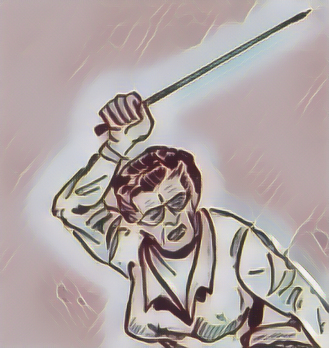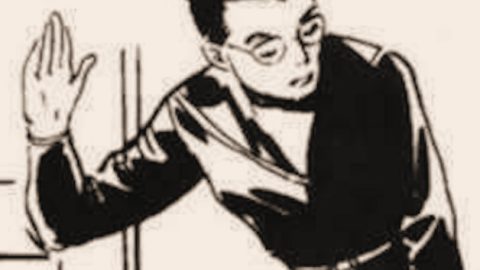(pause) Then there are those whose experiences were far darker. For them, corporal punishment was not a tool for discipline, but a weapon of humiliation and pain. Some were subjected to beatings that crossed the line into outright abuse, leaving them with a deep aversion to any form of physical discipline. Yet, even among this group, there are shades of gray. I’ve read accounts from people who, despite their own suffering, believe that a light smack or a controlled spanking can still have a place in raising children—so long as it’s never done in anger or excess. And then, of course, there are the younger voices, who recoil at the very idea, equating even a single slap to the bottom with abuse. The generational divide is stark, and the debates online can be fierce.
(pause) It’s a strange irony that those who advocate for CP in the home are often painted as monsters by their critics, accused of wanting to whip toddlers or worse. The truth, as always, is more nuanced. Most simply believe in firm boundaries and consequences, not cruelty.
(pause) Looking back over the last hundred years, it’s clear that society has swung from one extreme to the other. In my own school days, some fifty years ago, discipline seemed to strike a more reasonable balance. There was structure, but not brutality; consequences, but not cruelty. I sometimes wonder if we’ve lost something in our rush to protect children from every discomfort.
(pause) Roald Dahl, the beloved author, wrote vividly about his own schooldays and the corporal punishment he endured. He was so opposed to it that, when offered the chance to become a prefect at Repton, he refused because he would not cane the younger boys. That decision cost him the position, but it speaks volumes about his convictions. Dahl’s distaste for CP found its way into his fiction, most notably in the short story “Galloping Foxley,” which was later adapted for television. His stories capture both the fear and the absurdity of those old school rituals.
(pause) My father’s experiences were a study in contrasts. He attended a prep school where the headmaster, a stern man with a reputation for fairness, once caned the entire class for a collective failure. The memory of that day lingered in our family lore, not because of the pain, but because of the sense of shared responsibility. Later, at boarding school, my father was caned by prefects—boys only a few years older than himself. In time, he too became a prefect and was given the authority to punish others. Yet, he wielded that power with restraint, guided by a sense of justice rather than vengeance. He often said that the prefects kept order so the masters could teach, and he bore no grudge for the stripes he received.
(pause) One of my earliest memories of discipline at home involves my sister and a light kitchen spatula. Mother, never one for harshness, delivered a few quick smacks to my sister’s bottom for some forgotten misdeed. My sister, ever the defiant one, shouted, “It doesn’t hurt! It doesn’t hurt!” with each swat. Whether it truly didn’t hurt or she was simply putting on a brave face, I’ll never know. But I do remember the look that passed between my parents—a mixture of exasperation and suppressed laughter. Even in discipline, there was room for humor.
(pause) My own brushes with corporal punishment were mostly confined to school. I started out at a small private primary, a place that felt more like a family than an institution. The headmistress, a formidable woman with a sharp tongue and an even sharper ruler, once rapped a boy’s knuckles for some minor infraction. The boy’s tears, however, were for his broken ruler, not his bruised hand. It was a lesson in priorities, I suppose.
(pause) The following year, I moved to a private prep school, where discipline was more formalized. Corporal punishment was rare, but when it happened, it was an event. Only the headmaster, a tall man with a booming voice, was allowed to administer it, and only to the boys. His weapon of choice was a long-handled wooden spoon, affectionately known as “the basting spoon.” The mere mention of it could silence a room. I remember the tension in the air when he would thunder, “I shall bring up the basting spoon!” The sound of his footsteps echoing down the corridor was enough to make even the bravest boy’s heart race.
(pause) The offenses that warranted the basting spoon were usually trivial by today’s standards—throwing paper balls, cheeky remarks, or shouting out nonsense in class. Looking back, I suspect that one boy, who was punished for uncontrollable outbursts, may have had Tourette’s syndrome, though such things were not understood in the 1960s. Each time, the ritual was the same: the culprit was told to bend over, and three solid whacks were delivered. It stung, certainly, but it was over quickly, and life went on.
(pause) By modern standards, punishing seven- to nine-year-olds with a wooden spoon seems barbaric. But at the time, it was seen as a “short, sharp shock”—enough to deter misbehavior without causing lasting harm. Most boys accepted it as part of the school experience, and it rarely left more than a fleeting mark.
(pause) The biggest scandal during my time at that school involved four boys who were caught eating sweets at the town’s bus station while still in uniform. The headmaster, upon hearing of this breach of decorum, summoned them to his study after assembly. Each received a dose of the basting spoon. The story spread like wildfire, and for weeks afterward, the bus station was avoided like the plague by anyone in school colors.
(pause) Our family’s next move took my sister and me to a state primary, a stopgap while we waited for our new house to be ready. Father’s new job required a relocation, and the logistics of private school meant we had to give a term’s notice before leaving. The state school was a world apart from the private institutions I’d known.
(pause) Contrary to popular belief, I saw more corporal punishment in that state primary in a term and a half than I did in seven years at my later “big school.” The slipper—a battered old plimsoll—was the instrument of choice, and nearly every boy, myself included, felt its sting at some point. But the atmosphere was different. There was a camaraderie among the boys, a sense that we were all in it together. The teachers, too, seemed to treat it as a necessary evil rather than a pleasure.
(pause) Each slipper had a name—mine was “Archie.” When you crossed the line, you were called to the front, told to bend over, and given three quick whacks. It stung, and sometimes brought tears, but it was over in a flash. The lesson resumed, and no one bore a grudge. In fact, there was a certain pride in having survived a slippering, and stories of the most memorable punishments became playground legends.
(pause) I remember one occasion when the usually jovial form master lost his temper. Two boys were caught in the corridor, exchanging “naughty” words—“wee-wee” and “poo-poo,” of all things. The master’s face turned crimson, and the slippering that followed was more severe than usual. The boys emerged red-eyed and subdued, and for days afterward, the mere mention of those forbidden words was enough to elicit nervous giggles.
(pause) Girls, for reasons never fully explained, were exempt from corporal punishment at school. Perhaps they were better behaved, or perhaps the rules simply forbade it. Whatever the reason, it was an unspoken truth that boys bore the brunt of discipline.
(pause) After we finally settled into our new home, I spent a year at another state primary. Here, corporal punishment was rare, almost invisible. I never witnessed it myself, though I heard whispers of a boy in another class who was slippered for “back chat.” The absence of regular punishment didn’t seem to make the children any less well-behaved, which made me wonder about the necessity of it all.
(pause) My final school was an old-fashioned boys’ public school, steeped in tradition and discipline. Corporal punishment was still on the books, but by then, it was reserved for serious offenses. A caning or slippering in the Senior School was big news, the subject of hushed conversations and wild speculation. In the Junior School, some housemasters were more liberal with the slipper, but even then, it was usually done in private. I recall two occasions when a boy was slippered in front of the class, reduced to tears by the force of the blows. The rest of us sat in silence, chastened by the spectacle.
(pause) In the Senior School, smoking was the cardinal sin, and being caught meant an automatic caning. Some housemasters, however, preferred to assign lines or detentions, believing that humiliation was a more effective deterrent than pain. I must have chosen my friends poorly, for several of them found themselves on the receiving end of the cane, either for smoking or for more general mischief. The stories they told afterward were always tinged with bravado, but I could see the fear in their eyes.
(pause) Looking back, I believe the discipline of my schooldays was, on the whole, fair. There was order, but not oppression. Boys were not given the power to punish other boys, as in my father’s day, and the worst excesses of the past had been curbed. We learned respect, not just for authority, but for each other.
(pause) In the end, I think the key is balance. The punishment should fit both the age of the child and the seriousness of the offense. A light slap for a young child, a hand-spanking or slippering for an older one, and perhaps the cane for teenagers who truly cross the line. But always, the goal should be correction, not humiliation or pain for its own sake.
(pause) The world has changed, and so have our attitudes toward discipline. But the memories linger—some painful, some funny, all part of the tapestry of childhood. And every so often, when I see an old photo or hear the echo of a stern voice, I remember the lessons learned, both in and out of the classroom.







